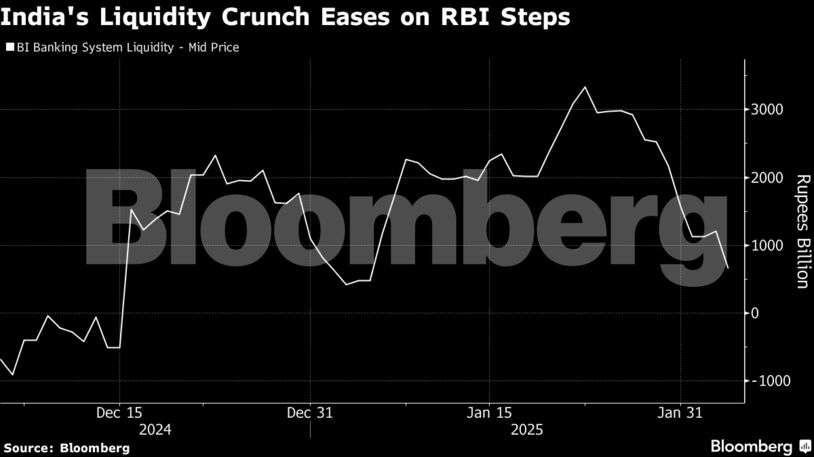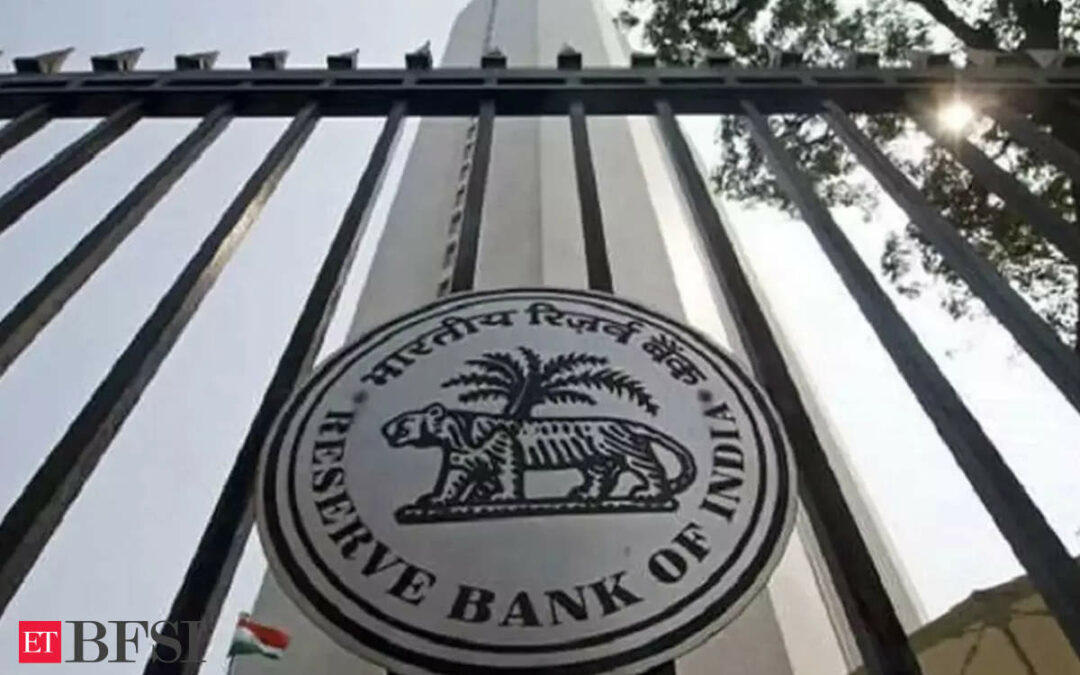The cash crunch plaguing India’s banking system has more than halved after the central bank took aggressive liquidity injection measures amid faltering economic growth.
Deficit liquidity, or the amount that lenders borrow from the Reserve Bank of India, stood at 660.4 billion rupees ($7.6 billion) as on Feb. 4, down from 2.2 trillion rupees on Jan. 30, according to a Bloomberg Economics index.
The cash injection has also led to a decline in the weighted average call rate, which represents banks’ overnight borrowing costs. The rate has dropped from a high of 6.88% last month to align with the benchmark policy repurchase rate of 6.50%. Local swaps have also eased, with the one-year rate falling by as much as 26bps below the RBI’s key rate.

Factors including a pick-up in government spending at the start of the month have also helped shrink the cash shortage, which had risen to 3 trillion rupees late last month, the highest in at least 14 years. The central bank’s dollar sales to protect the rupee from volatility, tax outflows and larger cash withdrawals from banks had added to the tight liquidity.
“There is a need for further liquidity infusion because the pressure on the rupee continues, which necessitates some amount of RBI intervention and that is a drag on liquidity,” said Sakshi Gupta, an economist at HDFC Bank. “As we move into March, there will be tax outflows again.”
Of the $18 billion that the RBI plans to inject, it has so far pumped in a little more than $7 billion via open market bond purchases and a foreign-exchange swap. The central bank carried out the first tranche on Jan. 30.









